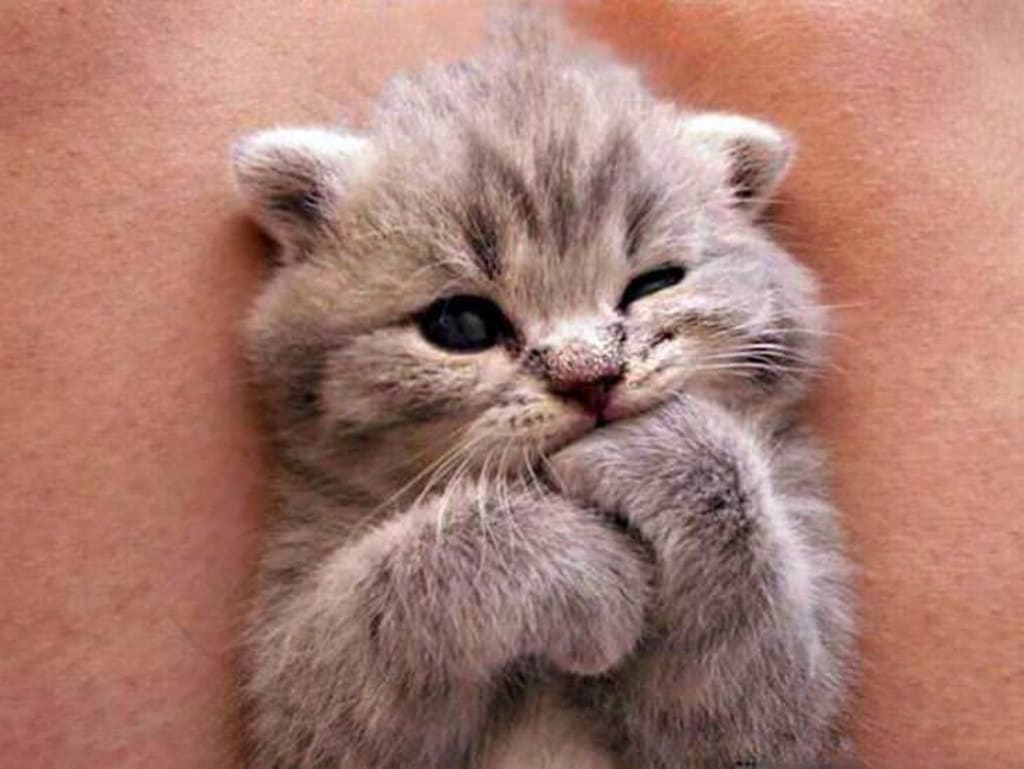Do you like to Squeeze Cute Things? Do you know why?
Explore the psychology of cute aggression

Observing a delightful little kitten frolicking and playing with innocent abandon brings forth a sense of warmth and joy within the heart, as one takes in the pure, unadulterated moment of carefree happiness. The charming sight of the young feline exploring and discovering the world around it, animatedly chasing after toys or pouncing on imaginary prey, is a reminder of the beauty and simplicity of life.
You might experience an intense desire to pick up the kitten and embrace it tightly, showering it with kisses like a woodpecker relentlessly pecking a tree. While you squeeze tighter and tighter or even a desire to eat him alive he's just so darn cute! However, you refrain from acting on this impulse and may even be disgusted by this thought.
Although this impulse, known as "cute aggression," may be surprising, it is a common occurrence estimated to affect approximately 50% of adults. To comprehend this peculiar phenomenon better, we need to start with what cuteness means. In 1943, a scientist created a baby schema identifying the key features associated with cuteness, such as chubby cheeks, large eyes, and short limbs. These traits commonly found among young animals are distinguished from other qualities seen as less cute.
Decades of research have shown that this baby schema reliably matches how people perceive cuteness. When presented pictures containing more of these key features, individuals tend to gaze longer and more frequently. These images stimulate brain regions related to emotion and reward. Cuteness is known to affect behaviors as well.
In a 2009 study, subjects performed better at the game of Operation, which requires precise movements, when shown cute images beforehand. Another study's results indicate that people utilize recycling bins more frequently when adorned with cute pictures.
Why does cuteness have such power over us? Although it is almost impossible to tell, one theory is that cute things cause us to want to nurture them. Evolution favored infancy because human babies are relatively helpless on their own; thus, infants perceived as cute were favored, and more care and interaction were provided. Being acutely aware of cuteness, we are attracted to comparable characteristics in other species. As we domesticated animals, their physical appearance changed as well. Certain scientists have noted a phenomenon termed "domestication syndrome" where specific animals have gradually adopted more juvenile features and have become more docile. This also produces physical characteristics such as droopy ears, shorter snouts, and smaller jaws. This is one explanation of how behavioral characteristics such as friendliness may select for cuter physical traits. Essentially, as humans bred and domesticated docile dogs, we caused some breeds to resemble babies.
Yet, if cuteness is related to nurturing and decreased aggression, why would anyone ever want to compress the urge to bite cute things? Cute aggression is linked to emotional overload and not the intention to harm. Some scientists believe that cute things elicit such strong emotions from specific individuals that the experience becomes overwhelming. They hypothesize that slightly aggressive, discordant thoughts function as a means for the brain to regulate these intense feelings, instead of compelling you to devour a kitten. Although cuteness may seem like a trivial, innocent quality, it wields a considerable, consequential power.
One area where this power is highly underrated is advertising. We are bombarded every day with images and videos of attractive men and women selling us products, and we hardly bat an eye. Yet, the cuteness in those ads runs our lives, shaping our desires, behaviors, and even our identities.
We are more likely to buy a product if it is endorsed by a celebrity or an influencer who embodies our ideal of cuteness. We are also more likely to trust and like a brand if it uses cute mascots or characters in its commercials or packaging. And let's not forget the impact of cuteness on social media, where likes, comments, and shares are often driven by the attractiveness of the poster or their content.
The insidious aspect of cuteness in advertising is that it works on a subconscious level, bypassing our critical thinking and appealing to our emotions. We may not even realize how much we are influenced by the cute faces, voices, and gestures that surround us. Moreover, we may not question the ethical implications of using cuteness to manipulate our choices and preferences, as if we were mere puppets controlled by a master puppeteer.
However, even if we acknowledge the power of cuteness in advertising and other domains, we may not be willing to give it up or resist it. Why? Because cuteness also brings us joy, comfort, and intimacy. We love to look at cute animals, babies, and people, and feel a surge of positive emotions that can outweigh any rational concerns. We also enjoy the social bonding that cuteness can facilitate, as we share our love for cute things with others and create a sense of belonging.
In the end, perhaps we don't care that cuteness is controlling our minds, because we derive so much pleasure and meaning from it. Maybe we accept that emotions can be irrational, and that cuteness is one of those irrational but essential aspects of our lives. Or maybe we just surrender to the power of cuteness, and let it guide us towards a more charming and delightful world.
If you enjoyed please Like, Share, Tip, Leave a comment or suggest another topic.
Thank you I appreciate your support
About the Creator
Enjoyed the story? Support the Creator.
Subscribe for free to receive all their stories in your feed. You could also pledge your support or give them a one-off tip, letting them know you appreciate their work.






Comments
There are no comments for this story
Be the first to respond and start the conversation.